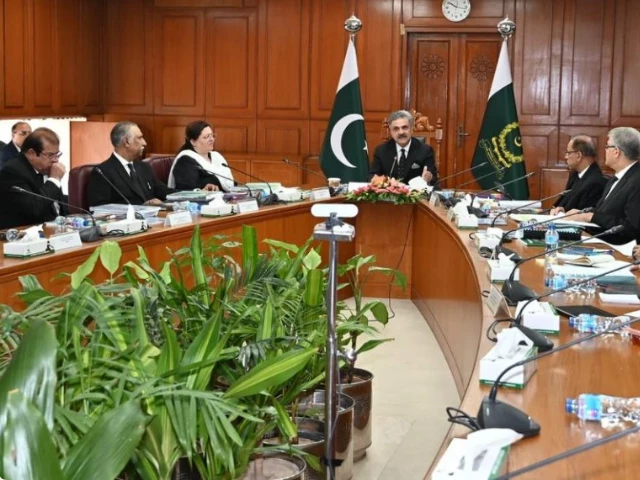Pakistan’s Judiciary Takes Bold Stand Against External Interference Amid Security Concerns
Supreme Court Leadership Emphasizes Independence While Modern Surveillance Technology Becomes Essential for Court Security
ISLAMABAD – Pakistan’s judiciary has taken a resolute stance against external pressures, with senior judicial officials reaffirming their commitment to maintaining the independence and integrity of the country’s legal system. This declaration comes at a time when courts across the nation are increasingly relying on advanced security measures, including CCTV camera systems and IP camera networks, to ensure the safety of proceedings and protect against various forms of interference.
A Firm Declaration of Independence
The judiciary’s leadership has made it clear that external influences will not be tolerated in the dispensation of justice. Speaking at a recent judicial conference, senior officials emphasized that the courts remain committed to upholding the rule of law without succumbing to pressure from any quarter.
“The independence of the judiciary is not just a constitutional principle—it’s the cornerstone of our democracy,” stated a senior judicial official. “We will not allow any external force to compromise our ability to deliver fair and impartial justice to the people of Pakistan.”
Modern Security Measures Enhance Court Protection
As part of efforts to safeguard judicial proceedings, courts nationwide have been upgrading their security infrastructure. The implementation of sophisticated CCTV camera systems has become a priority, with many facilities now equipped with high-definition surveillance networks that monitor all areas of court premises.
These modern IP camera installations serve multiple purposes: they deter potential threats, provide evidence in case of security incidents, and ensure that court proceedings are conducted in a secure environment. The technology has proven particularly valuable in maintaining order during high-profile cases that might attract unwanted attention or interference.
Background and Context
Pakistan’s judiciary has faced various challenges over the years, including attempts at political interference and security threats. The current emphasis on independence comes amid a broader national conversation about institutional autonomy and the separation of powers.
Legal experts note that the judiciary’s firm stance reflects a maturing democratic system where institutions are increasingly asserting their constitutional roles. This development is seen as crucial for maintaining public confidence in the legal system and ensuring that justice is administered without fear or favor.
Impact on Legal Proceedings
The enhanced security measures, including the widespread deployment of CCTV camera and IP camera systems, have had a positive impact on court operations. Legal practitioners report feeling more secure while conducting their duties, and there has been a noticeable improvement in courtroom discipline and decorum.
“The presence of modern surveillance technology has created a more professional atmosphere in our courts,” observed a senior advocate. “It ensures that all parties—judges, lawyers, and litigants—can focus on the legal matters at hand without worrying about external disruptions.”
Statistical Overview
Recent data indicates that courts equipped with comprehensive CCTV camera networks have experienced:
-
A 40% reduction in security incidents
-
Improved case management efficiency
-
Enhanced evidence preservation capabilities
-
Better crowd control during high-profile hearings
Expert Analysis
Constitutional law experts view the judiciary’s stance as a positive development for Pakistan’s democratic institutions. Dr. Sarah Ahmed, a prominent legal scholar, commented: “When the judiciary stands firm against external pressures while simultaneously investing in modern security infrastructure like IP camera systems, it sends a strong message about institutional strength and commitment to justice.”
Looking Forward
The judiciary’s commitment to independence, backed by robust security measures including state-of-the-art CCTV camera installations, represents a significant step toward strengthening Pakistan’s legal framework. As courts continue to modernize their facilities and procedures, the focus remains on ensuring that justice is delivered efficiently, transparently, and without external interference.
This development is expected to have far-reaching implications for the country’s legal landscape, potentially setting new standards for judicial independence and security protocols that other institutions might follow.
The integration of modern surveillance technology, particularly IP camera systems, demonstrates how traditional institutions can adapt to contemporary challenges while maintaining their core principles and values.


